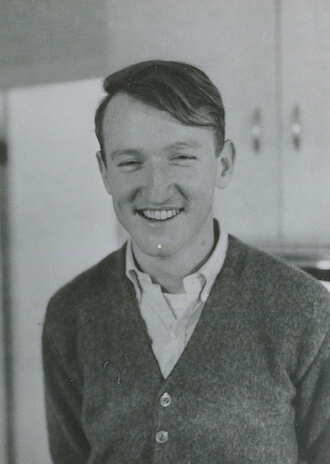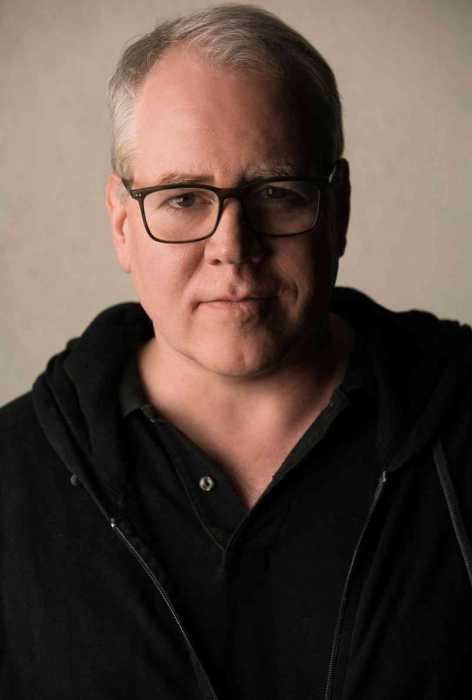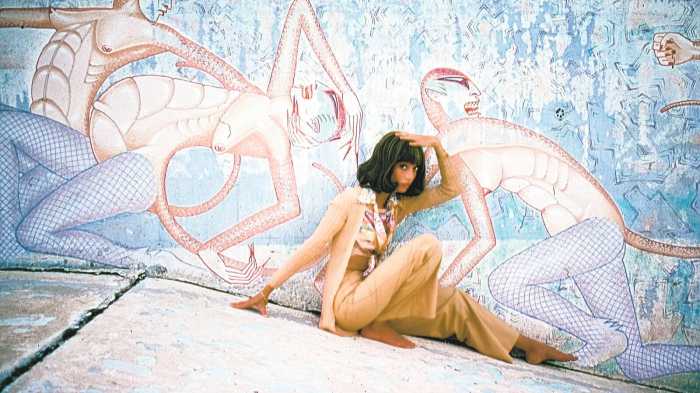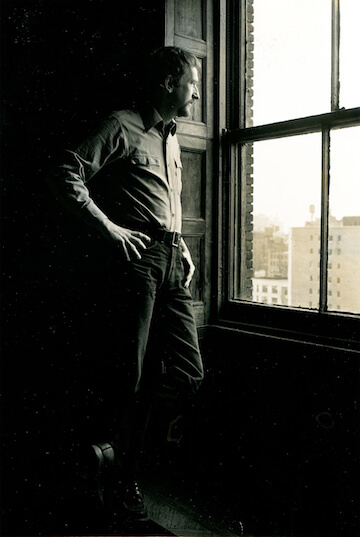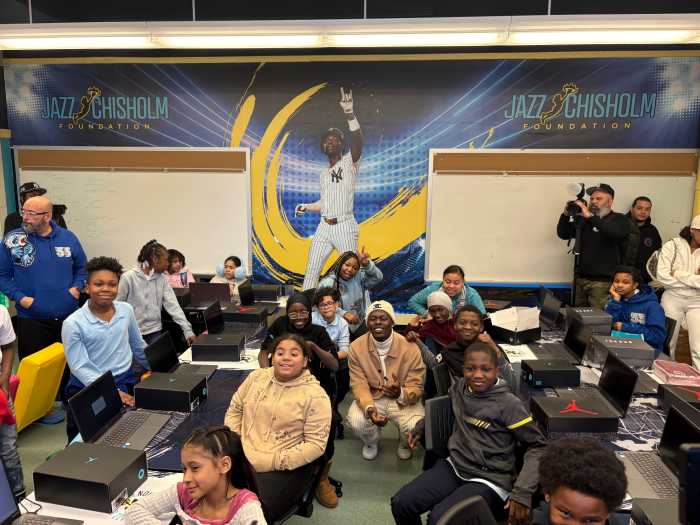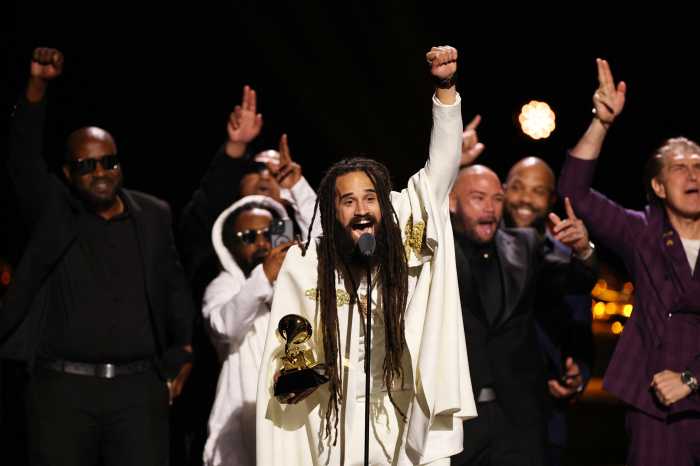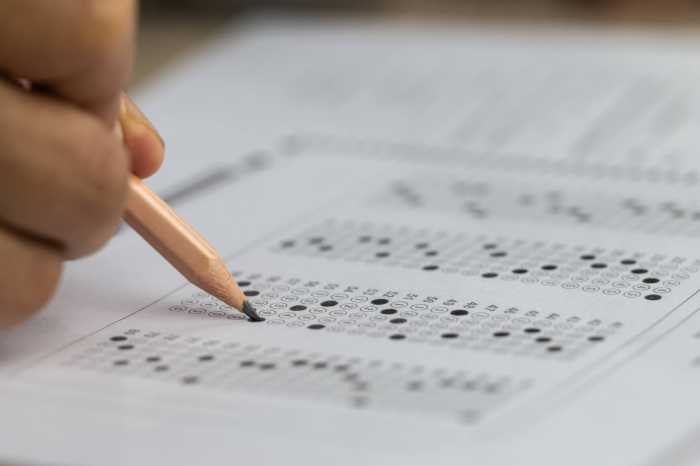Gerald Busby as a Yale undergraduate in 1960.
BY GERALD BUSBY | As a typist in an advertising agency and the proud occupant of a tiny $50-dollar-a-month apartment at the corner of Spring and Mulberry Streets in Little Italy, I felt like I belonged in New York. It was 1963 and I had voted for John F. Kennedy and followed his presidency with an excited political awareness that was new to me. I defended him to my parents in Texas, whose main complaint was his Catholicism. Their religious bigotry underscored the miracle he was in American politics. I believed he would never say bad things about gay people. I was, like my parents, confused about the difference between belief and reality.
Then I saw him assassinated on television, and my world collapsed. I needed to be alone for the first time in my life — so I sold my Steinway model “M” piano, gave away all my books and LPs, and found a job as a traveling college textbook salesman with Random House and Alfred A. Knopf. I was interviewed for the job by a bright, charming gay man named George Rivers, whose appearance and behavior replicated and meticulously improved upon every quality I liked in young straight businessmen: smart, stylishly masculine, taciturn, and hot. I was overwhelmed when introduced to Bennett Cerf, a founder of Random House, who shook my hand and asked, “Are you one of our new field editors?” George smiled at me, and I answered, “I think so.”
My first territory as a representative of these elite and auspicious publishers was an area no other salesman wanted — West Virginia, Ohio, and Kentucky. I got my wish to be alone. In fact, I never felt so alone as I did my first night in Arcadia, West Virginia. Years later, in Robert Altman’s film “A Wedding” (1978), I played a Southern Baptist preacher. Altman encouraged me to write my own dialogue in a scene in which my character told Dina Merrill, playing a supercilious rich woman, “God spoke to me from a TV set as I lay in bed with somebody in a Holiday Inn in Arcadia, West Virginia.”
Salesmen like me were called college travelers. My routine was to first visit the college bookstore, get a schedule of classes, and then see teachers who taught courses for which I had books. My list from Random House and Knopf was mostly in the arts and humanities. I longed to meet young, good-looking gay professors. When that happened, I took them to lunch and gave them copies of books they said they might adopt for their courses. My salesmanship was a performance, and my goal was to get them to like me. As I learned from the Texas Baptist evangelist Angel Martinez when I was 16 and saving souls in Alabama, seduction is the surest and quickest route to acquiescence. Now I was hustling books rather than Jesus.
My second year on the road I was assigned to another territory, one of the most desirable: the Mountain States. In addition to Colorado, Wyoming, Utah, Arizona, and New Mexico, I had West Texas, Kansas, and Nebraska. Selling books on the road meant many hours every day behind the wheel of a car, something I had grown up with in Texas. But now it was mesmerizing to travel the vast open spaces of the plains. Driving across Kansas toward Colorado I caught sight of what seemed like a mirage on the distant horizon. It looked at first like purple clouds, then my heart quickened as I realized it was the Rocky Mountains. My excitement at the sight of those majestic formations was primal. The day after I arrived in Boulder, I found an apartment. It was my nest in paradise; George had told me I needed a place to call home in my territory.
During my first week selling textbooks, I met Hazel Barnes, chairman of the anthropology department at the University of Colorado, and famous as the translator of Jean-Paul Sartre’s “Being and Nothingness,” the seminal philosophical masterpiece of French existentialism. I was stunned and in awe to meet her and become her friend. This book by Sartre and Kierkegaard’s “Either/Or” had been touchstones of my philosophical studies at Yale. Meeting Hazel Barnes was like meeting Moses. There was also the advantage of Hazel’s being a Knopf author and consultant to Blanche Knopf, Alfred’s wife. At Hazel’s recommendation, Blanche published the first English translation of works by Albert Camus and Simone de Beauvoir. I threw a cocktail party, for which I made the pâté, when Hazel’s translation of Sartre’s “Search for a Method” was published by Knopf. I also played a piano recital of Mozart, Beethoven, and Scriabin in the sanctuary of the Episcopal Church to honor Hazel. The love of her life, Doris Schwalbe, an heir to the Libby-Owens glass fortune, kissed me and said no salesman had ever been that nice to Hazel. They lived on the eastern slope of the Rockies in a cantilevered house designed by a Japanese protégé of Frank Lloyd Wright.
Straight male professors in the philosophy department who disapproved of Hazel and Doris’ lesbian relationship referred to them as “Hazel and Diesel.” Those professors might well have been jealous of Hazel’s astonishing output of major translations and original philosophical essays, totaling some 25 highly esteemed books. Her regular job at the university was teaching social anthropology. She got up at five every morning to write, and she cautiously put the work in her bedroom safe.
The trip from Boulder to Salt Lake City was usually by way of Wyoming, and crossing the border into the natural grandeur of Utah was exhilarating. I learned early in my travels to arrive at my destination before dark, check into my hotel, and locate the best restaurant in town. In Salt Lake I always stayed at the Hotel Utah, right across the street from the leading department store, ZCMI (Zions Cooperative Mercantile Institution). They sold good crystal burgundy wine glasses for low prices. You needed your own wine glasses back then, and your own liquor, too. The Mormon way of reminding you that it was sinful to drink was to locate stores (all government-controlled) in out-of-the-way and hard-to-find places. They also moved them every few months and made you fill out a lengthy form before letting you buy any alcohol. The only gay bar in Salt Lake was right downtown and called the Radio City Bar. On my first visit there I ran into the composer Ned Rorem, who was a guest lecturer at the University of Utah.
My cousin Ruth Jones was teaching creative writing and research at the university, and this was my first time meeting her. She was famous in our large family for being smart and playing the trumpet “better than any man.” That meant she was a lesbian. When she opened the front door of her house and invited me in, I knew we’d be close. She wasn’t pretty; she was lanky and had a tight weathered face like her mother Zada, one of my mother’s nine sisters. But Ruth was charming and funny and obviously glad to meet me, a gay relative who had gone to Yale. We practically fell into each other’s arms, talking endlessly about everything — including Kierkegaard, who, she had set out to prove in her PhD thesis, was a major influence on the English poet and critic Matthew Arnold. I wasn’t really sure who Arnold was, but it didn’t matter. Ruth and I laughed and drank wine and talked and talked until her partner Marian Sheets told us to stop. Marian was the director of the Arabic Collection at the University of Utah, and she needed some sleep.
I was euphoric when I left Ruth’s house that night. Meeting her was a joyous gift. She was my cousin, and she was smart and sweet and talked openly about being gay and living in a society that disapproved and made fun of her and Marian. Lying in bed back at the Hotel Utah, I repeated over and over everything Ruth and I had said to each other. I was surprised when I began to cry in my pillow. I loved her for being the first person ever to make me feel it was okay to be gay.
Gerald Busby, a protégé of Virgil Thomson, is best known for his film score for Robert Altman’s “3 Women” and his dance score for Paul Taylor’s “Runes.” With Craig Lucas, he is currently writing an opera based on “3 Women.” Busby’s life as a longtime resident of the Chelsea Hotel is the topic of “The Man on the Fifth Floor,” a documentary film currently in production.

